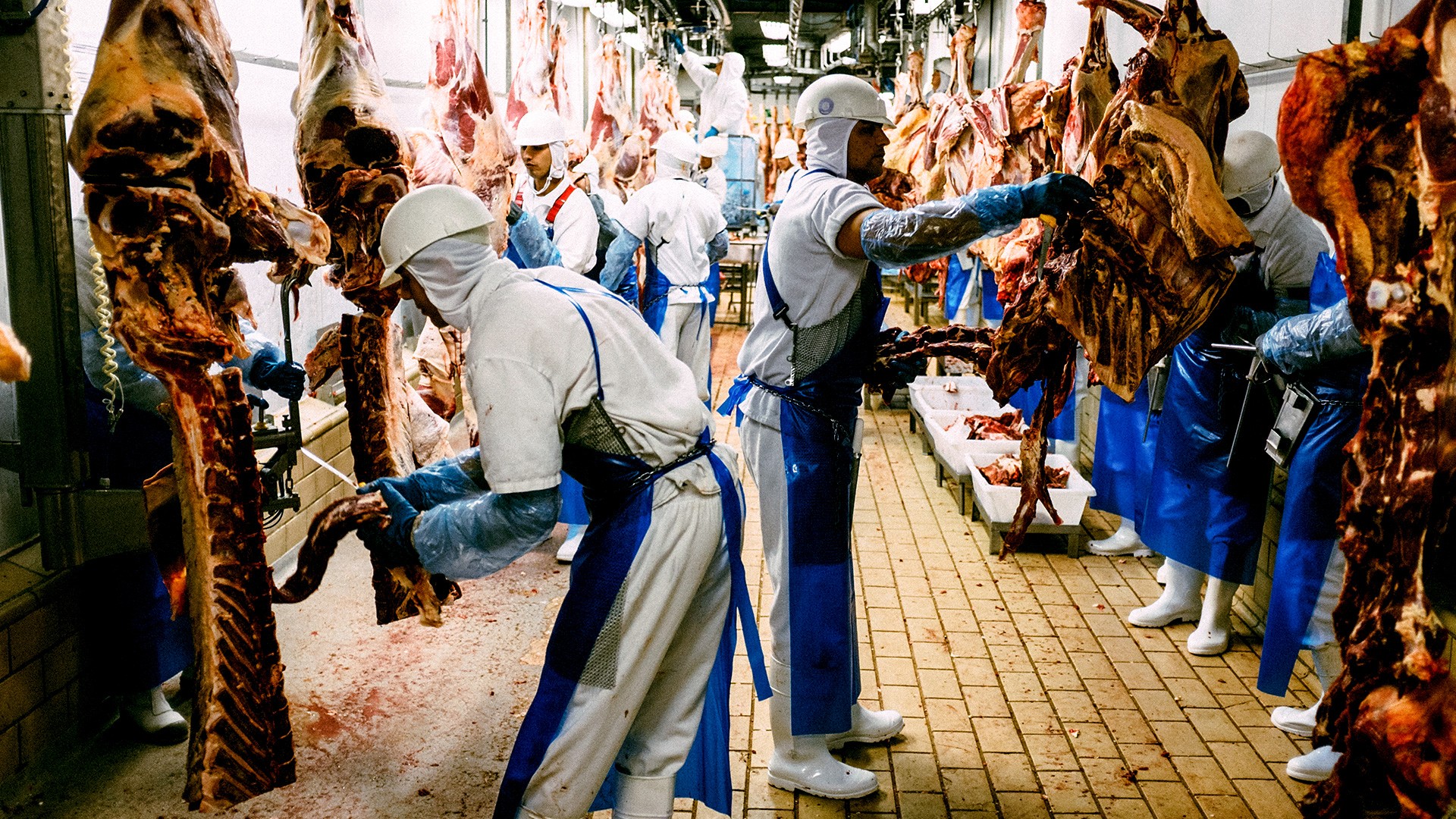Photo provided by Author
Amidst the burning cars and mass protests, this year's G20 summit in Germany marked a sharp rise in heated discussions over free trade, with the United States constantly playing the role of the odd country out. Disagreements on the question of steel dumping sparked bitter rows between American and Chinese delegations. French president Emmanuel Macron challenged Trump's transactional approach to trade, lecturing him on the benefits of multilateral deals. Even British Prime Minister Theresa May, a rare ally, exerted pressure on Trump to recognize free trade's role in raising global living standards.Overall, G20 leaders were consistent in their reasons for condemning Trump's protectionist stances. In theory, two nations engaging in free trade will mutually reap the benefits if they both conform to a set of environmental, social, safety and health norms. But if you dig beneath the surface, you'll find that America's trade partners are not always playing by the rules.International trade, like climate change and security, was a major topic of conversation at the G-20 table, and closely linked to that for American consumers is the recent controversy of tainted meat imported from Brazil.
Watch some more video from VICE:
Brazil has a mixed record on international trade and food safety. In 2005, the USDA's Food Safety and Inspection Service conducted five routine equivalency audits in Brazil that revealed that inspectors were not paid by the federal government. Instead, the workers received subsidized meals, transit and had their medical bills covered by the companies they were inspecting.Subsequent problems included the discovery of drug traces on Brazilian meat in 2010, as well as an outbreak of mad cow disease four years later. In 2010 The situation was compounded by a controversial USDA decision to allow fresh meat imports from Brazil as part of an opaque settlement over a cotton dispute. Shortly after 87,000 pounds of Brazilian Ivermectin-contaminated beef were recalled in the United StatesThe USDA's findings in March led to the temporary suspension of meat exports to the U.S in June. As Brazil's efforts to reverse import bans bear fruit, Food & Water Watch has pressed the USDA to revoke the equivalency determination for Brazilian meat exports to the U.S.
Advertisement
In March, allegations surfaced that Brazilian health inspectors accepted bribes in exchange for overlooking the sale of rancid products, falsifying export documents or failing to inspect meat packing plants. Upon hearing the news several countries including China and the European Union retaliated with import bans on Brazilian meat products.The scandal raises serious questions about the equivalency in inspection systems that underpins America's trade relationship with Brazil. Tony Corbo, a food expert at the NGO Food &Water Watch, argues that the equivalency determination is failing American consumers and needs to be called into question. "The Brazilian inspection system does not meet our standards. It's obvious that the Brazilian government has no control," Corbo said in an interview with VICE Impact.The scandal raises serious questions about the equivalency in inspection systems that underpins America's trade relationship with Brazil.
Advertisement
Watch some more video from VICE:

Brazil has a mixed record on international trade and food safety. In 2005, the USDA's Food Safety and Inspection Service conducted five routine equivalency audits in Brazil that revealed that inspectors were not paid by the federal government. Instead, the workers received subsidized meals, transit and had their medical bills covered by the companies they were inspecting.Subsequent problems included the discovery of drug traces on Brazilian meat in 2010, as well as an outbreak of mad cow disease four years later. In 2010 The situation was compounded by a controversial USDA decision to allow fresh meat imports from Brazil as part of an opaque settlement over a cotton dispute. Shortly after 87,000 pounds of Brazilian Ivermectin-contaminated beef were recalled in the United StatesThe USDA's findings in March led to the temporary suspension of meat exports to the U.S in June. As Brazil's efforts to reverse import bans bear fruit, Food & Water Watch has pressed the USDA to revoke the equivalency determination for Brazilian meat exports to the U.S.
"It's a systemic problem," Corbo said, "Every time a scandal emerges, Brazilian authorities get their act together, promising transparency and accountability. But a few months later, evidence of wrongdoing appears again.We need to completely revoke our trade agreement and have Brazil reenter the application process with a thorough examination from the USDA."According to Corbo, American officials are partly to blame. "The reason why we want to fully revoke the deal is because the USDA doesn't conduct thorough reinspections at the border," Corbo said. "They say they do but unless the cans are seriously tinted, all products come in the United States."Today 120,000 firms from over 150 countries are authorized by the USDA to export their products to the United States, but only 2500 organizations from 40 countries are eligible to export meat. Food & Water Watch considers that allowing Brazil to export meat has opened a pandora's box of lopsided trade deals. The USDA is currently reviewing a deal allowing fresh meat imports from China.From an American perspective, the case for free trade is overwhelming. It has fueled economic growth, added jobs in export-driven sectors and given consumers a wider selection of products at lower costs in myriad industries. But opinions in the United States about free trade are permanently shifting.While Americans largely support it, they fear that certain agreements are skewed against American workers and consumers. A YouGov poll from December 2016 found that 50 percent of Americans strongly support increasing tariffs on goods imported from countries like China and Mexico. Whether these sentiments are due to a health scare around tainted food products or a xenophobic fear of foreign markets creating too much competition for American workers is debatable. Still, the scandal over Brazilian meat exports shows their concerns are at least somewhat justified. America should embrace global trade but ramp up efforts to enforce its rules."It's a systemic problem."
